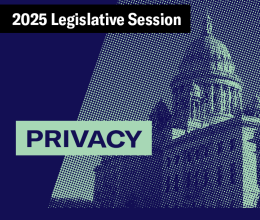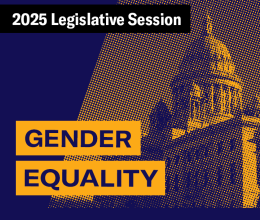Raising numerous concerns about the lack of meaningful privacy protections in the City of Providence’s new Real Time Crime Center (RTCC), the ACLU of Rhode Island sent a letter today calling on city officials to enact a municipal ordinance to protect privacy rights. The RTCC integrates a wide variety of intrusive surveillance devices — including drones, Flock Safety automated license plate readers, and privately-owned camera feeds — that police can access in real time. The letter argues that action is necessary to put strong privacy safeguards in place and prevent what the organization dubs “surveillance creep,” a surveillance system’s gradual expansion of use beyond its initial purpose.
Despite city officials’ claims that they recognize the importance of privacy protections, the ACLU letter highlights the complete lack of written policies establishing strong privacy safeguards to govern the use of the RTCC. The ACLU letter states:
"It is hard to believe that the City truly considers privacy to be a priority if it implements an invasive surveillance system like the RTCC before having privacy policies firmly in place, and without seeking any advance public input from the community on those policies."
Additionally, while the Police Department has stated that the center “complies with all local, state and federal laws,” the ACLU letter points out that there are no current statutes that provide significant privacy protections for this technology, calling the guarantee of compliance as it pertains to privacy “a largely empty gesture.”
The letter notes that this comprehensive surveillance system is authorized to address not just serious offenses like homicides and robberies, but also undefined “incidents involving suspicious behavior,” adding to concerns about assurances by the mayor and police chief that the RTCC will be used in very limited circumstances.
The civil liberties organization has continually raised objections to increasing surveillance technology use by police, including the city’s Flock Safety license plate readers, which have the capability to track individuals across cities and states, and have been used elsewhere for immigration enforcement purposes. The ACLU letter points out that, even if Providence does not use the license plate readers for such purposes, the data is shared with other police departments that can provide the information to Immigration and Customs Enforcement and other agencies.
A copy of the ACLU’s letter can be found here.




